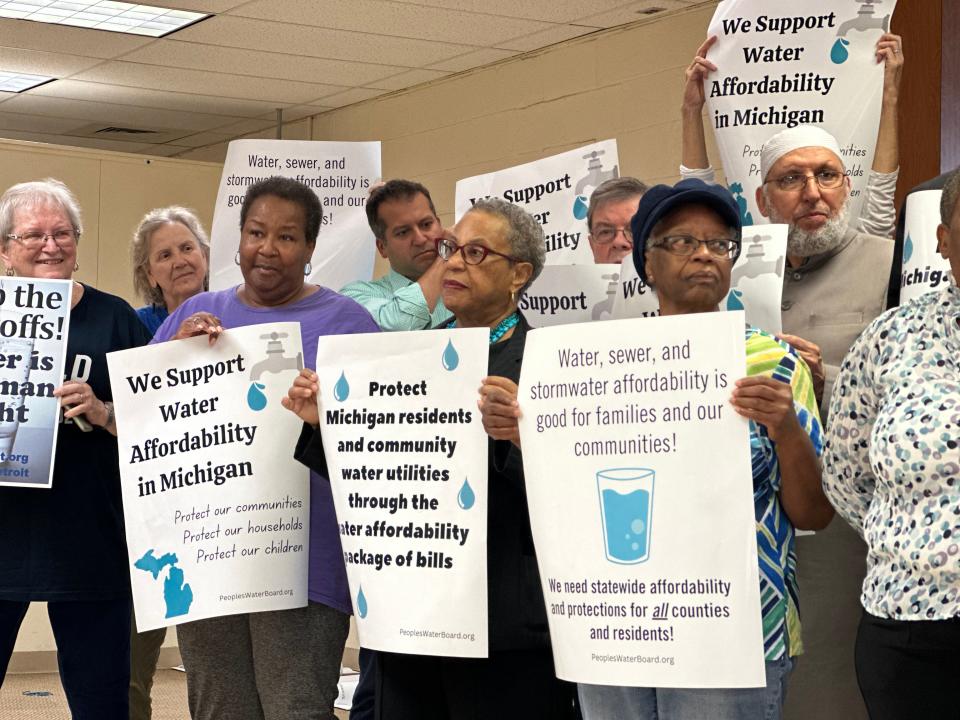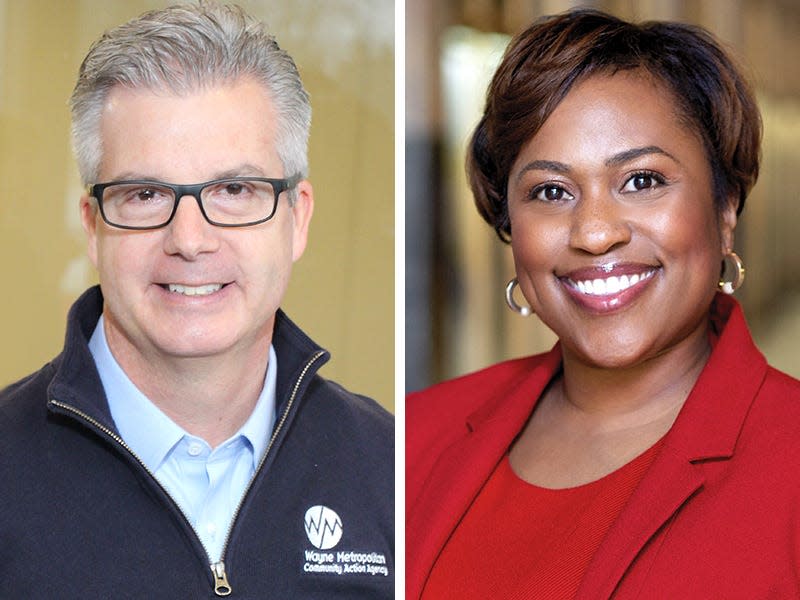We could fix the biggest problem at these call centers for $2 a month | Opinion
Calls for water bill assistance and home plumbing repairs now top the list at Wayne Metropolitan Community Action Agency's CONNECT Call Center and United Way for Southeastern Michigan's 2-1-1 help line.
Families that can’t get help may incur financial penalties — or their water may be shut off. Either presents an immediate threat to the health, well-being and safety of our most vulnerable residents including seniors, veterans, and people with disabilities.
Two programs have helped Michiganders keep their water on: The City of Detroit’s Lifeline Plan and the Great Lakes Water Authority’s Water Residential Assistance Program (WRAP), which provide low-income families an affordable monthly water bill. Enrolled residents don’t have to live in fear of service interruptions, and have the ability to make improvements that conserve water, permanently reducing future bills.
But funding for these water programs is limited, and has only been sustained through the use of COVID-19 relief dollars and direct appropriations from the federal government, both of which are running out.
The federal Low-Income Household Water Assistance Program (LIHWAP) will sunset in March. This compels us to identify a new way to safeguard this water access and affordability lifeline.
Even though Michiganders live in a state that boasts one of the greatest supplies of freshwater in the world, because of contamination and cost, too many of us can't get the water we need to be safe and healthy.

According to the Michigan Department of Health and Human Services (DHHS), more than 317,000 Michiganders were behind on their water bills during the COVID-19 pandemic, highlighting this as a public health issue and demonstrating the need to improve water access in every corner of the state — a need that continues today.
Our agencies are encouraging community support for Senate Bills 549-552. Introduced by state Sen. Stephanie Chang, the bills would allow the state to assess a fee creating a dedicated funding mechanism — costing residents just $2 a month — to address the pressing issue of water affordability across the state.
The state would use the affordability fund to ensure low-income households pay manageable rates, are protected from shut-off for non-payment and receive debt forgiveness, along with minor plumbing repairs to conserve water, and wraparound services for those most in need.
In addition to addressing the immediate needs of Michigan residents, these bills pave the way for long-term solutions. By incorporating infrastructure improvements, consumer rights, decriminalization measures and identity protections, this legislation represents a commitment to creating a sustainable and equitable water future for our state.
As advocates for the well-being of Michigan residents and communities, we urge our fellow citizens, community leaders, and legislators to join us in supporting this critical proposal.
As a state, we have a responsibility to ensure all residents benefit from our natural resources by providing equitable access to clean, healthy drinking water.
Let’s stand united in support of S.B. 549-552, ensuring that Michigan continues to lead the way in water access and affordability for all and, in doing so, safeguard the health and well-being of our residents for generations to come.

Darienne Hudson, Ed. D. is president and CEO of the United Way for Southeastern Michigan. Louis Piszker is CEO of the Wayne Metropolitan Community Action Agency. Submit a letter to the editor at freep.com/letters.
This article originally appeared on Detroit Free Press: Michigan water affordability legislation must move forward

